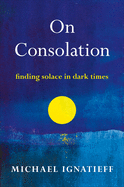
To be consoled, writes historian, professor and former politician Michael Ignatieff, is "to be reconciled to one's losses, to come to terms with one's shame and regrets, and to feel, despite everything, alive to the beauty of life." Amid the global upheaval due to the Covid-19 pandemic, these words, and the premise of this book, are a poignant reminder that to seek consolation or comfort is, in many ways, one of the most universally human things one can do.
Ignatieff traces a particularly Western history of the ideology of consolation, how it has been conceived and reconceived across time and belief systems, and across media from religious writings and essays to music, painting and poetry. He begins with the Book of Job and the Book of Psalms, and then makes a historical progression forward through the works of thinkers, writers and artists such as Cicero, Dante, El Greco, Montaigne, Mahler and Camus, before ending with Cicely Saunders, who founded the modern hospice. In doing so, Ignatieff grapples with ideas of consolation in religion and in secular thought, to come to the conclusion that it is not faith itself that necessarily brings consolation, but the knowledge that whatever one might be experiencing has also been experienced by others, that someone else has also borne witness to one's pain, grief or distress. Above all, Ignatieff reminds readers that consolation as an action brings people together in ways that can renew hope when they might otherwise lose it altogether, at a pertinent moment in history. --Michelle Anya Anjirbag, freelance reviewer

